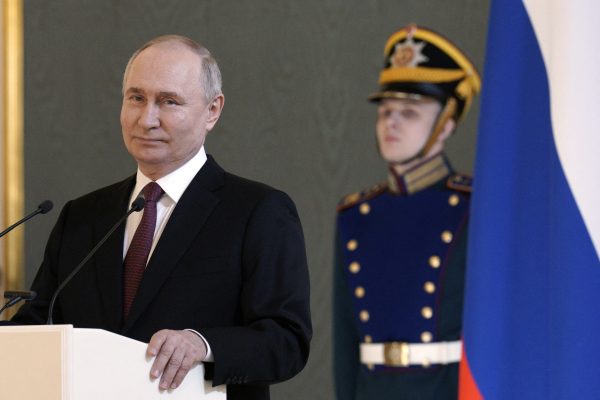The center-right opposition movement of millionaire Igor Matovič, Ordinary People (OLaNO), on February 29 won a decisive victory in Slovakia’s first parliamentary elections since the country was rocked by the murder of a young investigative journalist and his partner two years ago. With almost all the ballots counted Ordinary People had 25 percent of the vote, far ahead of expectations based on polling as late as last week and claimed 53 seats in the 150-seat parliament. Smer, the social democratic populist party that has ruled Slovakia for most of the past 14 years, suffered a sharp setback, with 18.3 percent, 10 percentage points less than it managed four years ago, and 25 percent less than it polled in 2012. It will have about 8 seats. The far-right LSNS party of Marian Kotleba, scored just 8 percent, putting it in fourth place, garnering 17 seats.
The popularity of OLaNO had risen in recent weeks due to its anti-corruption agenda. The surge for Ordinary People and the slump in support for Smer, moreover, is the latest indication of how the aftershocks from the brutal murder in 2018 of Ján Kuciak and his fiancée, Martina Kušnírová, still roil Slovak politics. The contract-killing triggered the largest street demonstrations in Slovakia’s history and forced Smer’s veteran leader, Robert Fico, to step down as prime minister. But his SMER party remained in office. Last year, the turmoil helped little known anti-corruption activist Zuzana Čaputová storm to victory in presidential elections. The impact of the killings has been magnified during the current campaign, with a string of lurid leaks from the investigation into the murders revealing alleged ties between politicians, justice officials, businessmen, and the Italian mafia. Slovak oligarch Marián Kočner, the subject of Kuciak’s reporting, has been charged with ordering the murder of Kuciak and Kušnírová.
During the parliamentary campaign, the ultra-right-wing LSNS was projected to profit from the protest mood. The LSNS is staunchly anti-EU and anti-NATO. The party’s support has been grounded on xenophobic attitudes towards Roma and Muslim people—Kotleba has branded Roma “gypsy parasites” and has romanticized the fascist Slovak state of 1939-1945. Kotleba is facing charges of spreading hate speech in Slovakia. The party’s influence also has been enhanced by disunity amongst the mainstream political parties. But at the ballot box, voters preferred the far more mainstream Ordinary People.
OLaNO will have the first chance at forming a government in what could be difficult coalition negotiations. Matovič would then become prime minister. But OLaNO still needs the support of additional parties to form a government. Matovič has said he would hold discussions with We Are Family (which is anti-immigration), SaS (tech-savvy liberals who advocate the decriminalization of small amounts of marijuana), which won 6.2 percent on Saturday, and the center-right party of former president Andrej Kiska, which managed 5.8 percent. However, Matovič has ruled out teaming up with the LSNS.
In power, OLaNO hopes to improve the healthcare system and address regional economic disparities. It is unlikely to put controversial issues such as gay rights high on its agenda. But the key to OLaNO’s political future is how it handles corruption. Party leaders hope to pass new anti-corruption laws, increase transparency, strengthen the judiciary, and reform the system of public procurement. Voters, given the choice, will vote for politicians who proclaim their honesty. But the lesson of the last 30 years in eastern Europe is that incoming leaders are either ineffective or actively try to inherit the privileges of the kleptocrats they displace.
Europe’s Edge is CEPA’s online journal covering critical topics on the foreign policy docket across Europe and North America. All opinions are those of the author and do not necessarily represent the position or views of the institutions they represent or the Center for European Policy Analysis.





